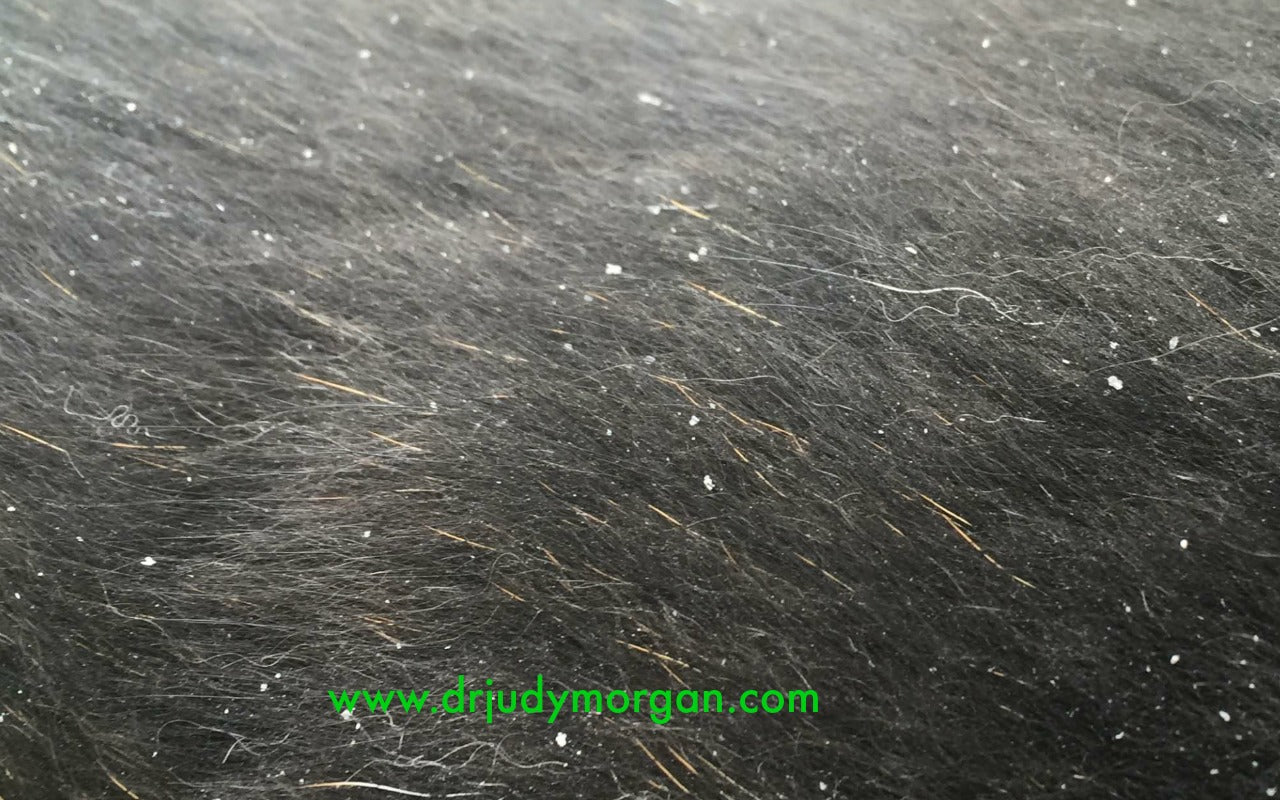Dry skin is no fun for us or our pets. Dryness leads to flaking and itching, which can then lead to secondary bacterial and yeast infections from incessant licking and scratching. I know I go through a ton of hand cream and lip balm during the winter months with low humidity and dry air from our heating system. Our pets are affected by the same environmental conditions.
Moisturizing shampoos and conditioners are a great proactive approach to help support dry skin and itching - I'm a huge fan of using a moisturizing shampoo and conditioner for my pups. If secondary bacterial or yeast infections are present, medicated shampoos, probiotics, and possibly medications will be required.
Dry, flaky skin may also be the result of dietary deficiencies, particularly omega 3 fatty acids, vitamin E, and zinc. From a TCVM (Traditional Chinese Veterinary Medicine) perspective, dry flakes may be the result of a Liver Blood deficiency. Foods that contribute to healthy blood include egg yolks, sardines, liver, and dark leafy greens. Many home-prepared diets are low in vitamin E (a great source is ground sunflower seeds) and zinc (great sources include spirulina, chlorella, and mussels).
Dry, processed foods (think kibble) contribute to dryness. Many times, the fats in packaged foods become rancid from oxidation, thus losing their beneficial effects. Supplementing with omega 3 oils, coconut oil, or organic flax seed oil will provide the building blocks for healthy skin.
To summarize, wintertime itches and scratches should not be written off as a typical, seasonal occurrence! Constant scratching can be an indicator of more serious health issues, and lead to a host of more serious ailments if not addressed. Look to diet, nutritional supplementation and holistic topical products first and you'll likely find solace from scratching and itching.
Disclaimer: This content is for informational purposes only and is not meant to diagnose, treat, or replace consulting a primary veterinarian for individualized care.

